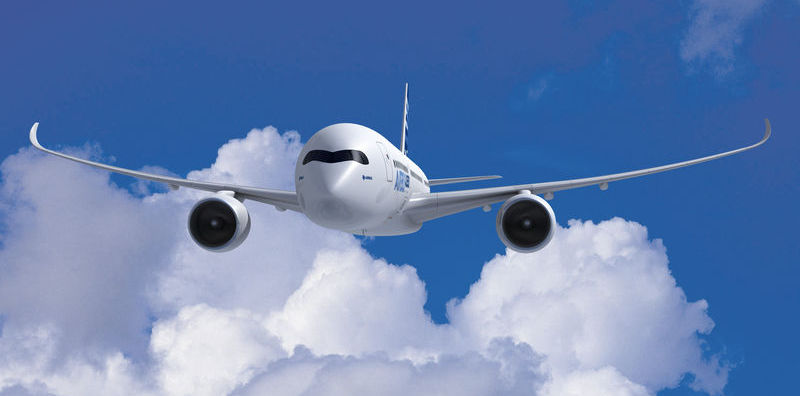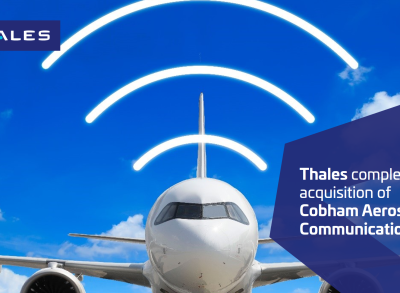COP 21: How to move towards sustainable flying?
At the occasion of the COP 21, the 21st Conference of the Parties, i.e. the annual meeting of all countries which want to take action for the climate held in Le Bourget, France, from 30 November to 11 December,
Philippe Priouzeau, technical director of Thales - Commercial avionics, tells us more about how Thales avionics solutions contribute to the fight against climate change.

“In the aeronautics sector, in addition to the progress made in eco-design and eco-organisation, Thales has developed products that enable airline companies to move towards sustainable flying. Indeed, although air traffic only generates around 2% CO2 worldwide, we have been working, for several years already, on research axes to reduce its global impact.
In our domain, this means to reduce the emission of pollutants, within a context of strong growth in air traffic. This involves a global optimisation with our colleagues at Thales ATM within the framework of the SESAR European project and also through optimisations made on board aircraft thanks to the Flight Management System (FMS) that we are working on as part of the CleanSky European programme”.
Designing more compact and lighter products
“Our clients expect to receive systems that are more and more reliable (which brings benefits in terms of ecological impact, with fewer repairs to carry out). They also expect more compact and lighter products which consume less energy, whilst also at the same time offering increased performance.
Thales is actively working on making onboard systems less complex and in reducing the amount of equipment. The creation of integrated modular avionics is powerful example of this success. This type of electronic architecture installed on the A380 enabled us to rationalise the needs of the calculators and to reduce the weight of the hardware by 15 to 20 % whilst also increasing the calculation capacities and extending the life span of the equipment.
In the life of an aircraft this search for simplification is sometimes necessary. On the A320 programme, Thales redesigned the onboard computers that had been conceived 20 years previously. Without modifying their shape to avoid impacting the aircraft systems, Thales developed new computers that are both more powerful and 70kg lighter, the equivalent of one passenger.
The consumption of energy, which is limited onboard an aircraft, is also one of the key stakes. To this end, Thales has worked on rationalising systems in the cabin and reduced the amount of equipment onboard whilst also improving the quality perceived by the passenger”.
Reducing fuel consumption
“Beyond the benefits mentioned previously, Thales is working on solutions that enable our clients to reduce their fuel consumption. These savings help reduce the overall carbon footprint of air transport. This reduced fuel consumption also helps airline companies to make savings.
A concrete example is continuous descent. This was conceived to reduce fuel consumption and noise pollution, by eliminating the traditional tiered approach of aircraft. This flight planning technique enables optimal flight profiles thanks to approach procedures using adapted instruments and airspace structures, or with the help of air control techniques. It uses lower engine power and, when possible, configurations that reduced aerodynamic drag.
This approach concept, launched in 2010, is currently being validated before a generalised entry into service. For a 45 minute A320 flight, say between Toulouse and Paris, this function saves around 100kg of kerosene!
Find us on Twitter @thales_avionics, on our official Youtube channel Onboard TV and on LinkedIn Thales Aerospace.




